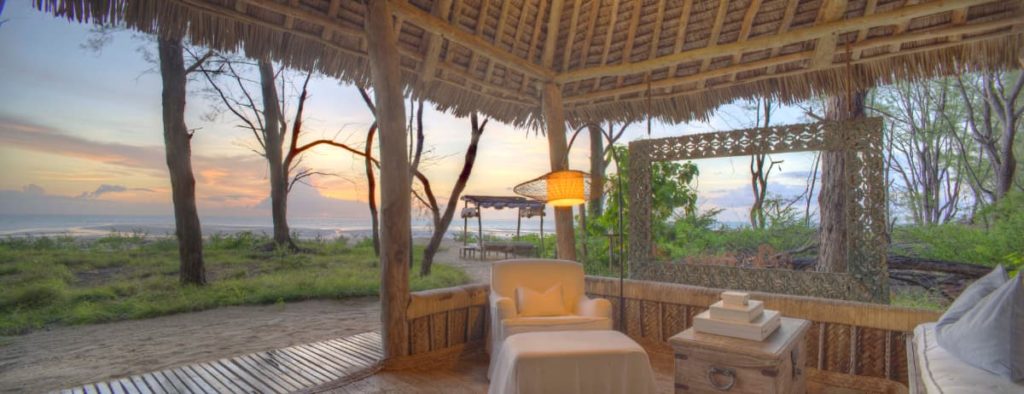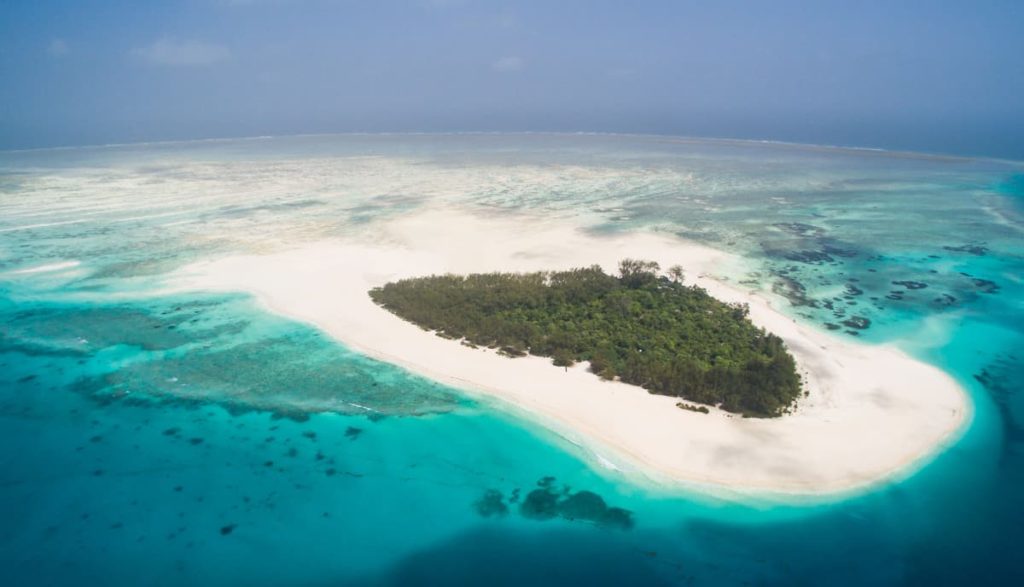Hamburg in spring. More than 1 200 people have flooded Cinemaxx, the biggest movie house of the North-German city, to watch and listen to a bunch of surfers, divers and activists. “Ocean without borders” is the motto. The “International Ocean Film Tour” in its fifth year no longer a clandestine environmentalist meeting but a massive audience draw. Onstage appears a sporty blond woman. The crowd starts cheering. Tessa Hempson starts talking. “Too many boats, to much fishing and diving, too many tourists and too much dirt from hotels – we must stop the murder of sea life.”
Next time I meet the rising superstar of the seas, we jollily walk around Stone Town, the historic old heart of Zanzibar. Tessa wants to pick up provisions for a trip to Mnemba, a one-square-kilometre luxury island within the Zanzibar archipelago. The attractive 39-year-old marine biologist with a PhD in marine conservation has dedicated her life to battling plastic garbage and fighting to preserve intact coral reefs. Her place of work is the ocean off the coast of Mozambique and Tanzania. Mother reefs, shining in fluorescent psychedelic colours, are her objects of research. But more and more often Tessa Hempson observes bleached corals, the result of climate change and man-made pollution.
Before we go snorkelling with dolphins – surely following a strict ethical code of conduct such as steady boat speed and entering the water quietly - she explains to me what a mother reef is all about: “In their spectacular coral bloom more than 200 various coral species release their eggs and seeds into the sea, a breath-taking play of colours which in turn attract marine species from tiniest creatures to Grey Reef Sharks, rare dugongs, humpback whales and the green sea turtle.“ The coral microparticles that the tiny animals excrete get washed-up as sand. Mother reefs are therefore the breeding ground for an intact sea.
It is no coincidence that African luxury hotel brands are increasingly engaged in environmental protection. A demanding, financially strong clientele attaches great importance to nature conservation – at the same time affecting the environment much less than mass tourism. “Better one guest pays 1 000 dollars, than 1 000 guests one dollar”, frankly sums up general manager Scott Rattray of Mnemba Island Lodge where a staff of 62 takes care of twenty guests in ten exclusive beach bandas. The well-established place is run by the South Africa-based travel company andBeyond who owns 29 safari lodges and camps and has taken the green strategy even a step further. The chain employs Tessa Hempson as a permanent in-house researcher and initiates lots of community projects. The luxury atoll Mnemba has gone completely green and plastic-free with its own desalination and bottling plant, grey water filtering, a turtle hatching beach, reforestation and an Aders Ducker antelope relocation project.

The project “Oceans Without Borders“, created by the hotel group andBeyond, reaches from Mnemba to Vamizi and Benguerra island, both in Mozambique, covering 2 000 kilometres of wild coastline. Just like the rhino scheme “Rhinos Without Borders“ is committed to biodiversity on land, Tessa’s island hopping is dedicated to saving biodiversity in the Indian Ocean.
Three hours a day Tessa spends in the seas. She was born in the landlocked town of Nelspruit, schooled in Pretoria and has studied in Australia. Now she controls reefs and records routes of sharks especially near Vamizi island where one of the oldest and healthiest reefs in the world is located. She has long confirmed the warnings of fellow international experts: “Rapidly rising concentrations of carbon dioxide warm-up oceans causing the decay of coral. Seven million tons of plastic garbage end-up in the sea annually.”
Another danger the South African environmentalist and researcher is worried about: offshore natural gas and oil discoveries. “A big threat to the fragile flora in the Indian Ocean,“warns the marine biologist. In Mnemba she recently has taught fishermen to snorkel and, thus, enjoy the underwater world with new eyes. She swims with local kids but often wishes away snorkelling tourists. “50 boats per day for one reef are just too much.”

The tiny oval-shaped atoll in the Zanzibar archipelago testifies to growing green awareness. For islands as much as for the entire world the choice is: It’s going under – or waking up!